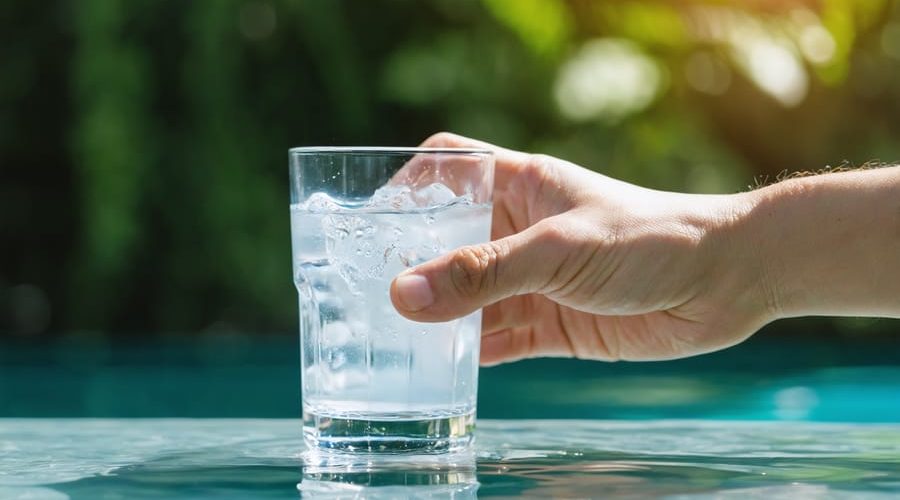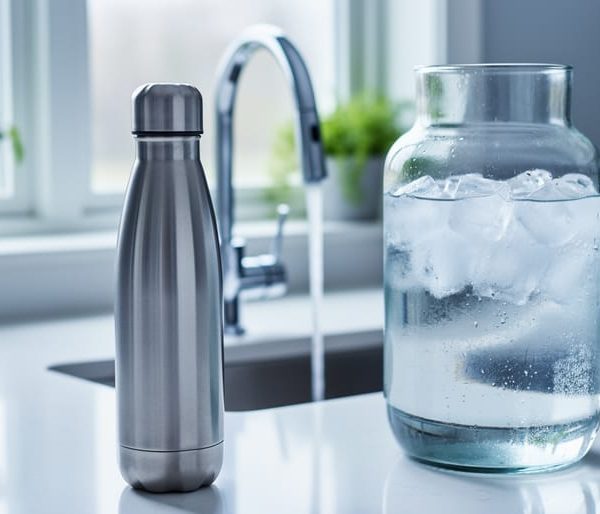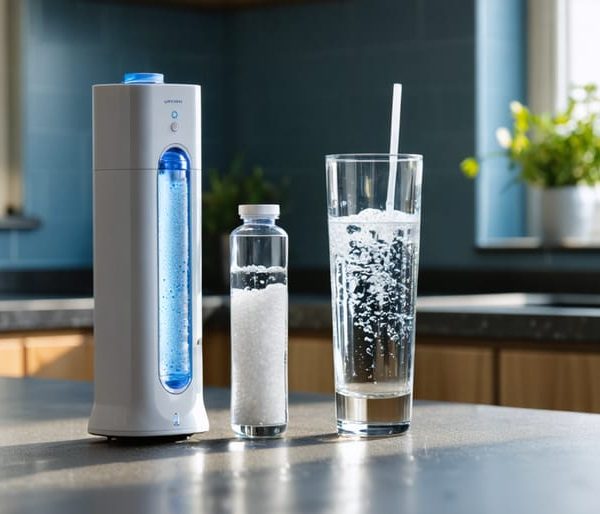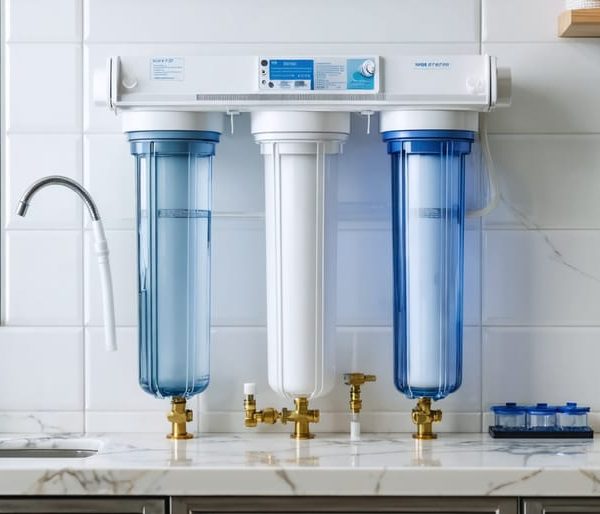The intricate relationship between water consumption and blood pressure reveals one of nature’s most essential health connections. Every cell in your body depends on proper hydration to maintain optimal blood volume and pressure – a delicate balance that directly impacts your cardiovascular health. Research shows that chronic dehydration can force your blood vessels to constrict, potentially leading to elevated blood pressure, while proper hydration helps maintain healthy blood flow and supports your body’s natural ability to regulate blood pressure.
When you’re properly hydrated, your heart doesn’t have to work as hard to pump blood throughout your body, contributing to better overall cardiovascular function. Recent studies indicate that consistently drinking adequate water – typically 8-10 glasses daily for most adults – may help prevent and manage hypertension alongside traditional treatments. Understanding this vital connection between hydration and blood pressure empowers you to make informed decisions about your daily water intake, potentially contributing to better heart health through one of the simplest yet most effective lifestyle modifications available.

The Science Behind Water and Blood Pressure
How Dehydration Impacts Blood Pressure
When your body becomes dehydrated, it triggers a chain reaction that directly affects your blood pressure. Think of your blood vessels as a network of pipes carrying water (blood) throughout your body. When you don’t drink enough water, your blood volume decreases, making it thicker and more concentrated. This causes your blood vessels to constrict as your body tries to maintain proper blood flow to vital organs.
In response, your heart has to work harder to pump this thicker blood through narrower vessels, which can lead to increased blood pressure. Additionally, dehydration causes your body to release higher levels of vasopressin, a hormone that helps your body retain water but also causes your blood vessels to constrict further.
Your kidneys also play a crucial role in this process. When detecting reduced blood volume, they activate the renin-angiotensin system, which raises blood pressure by retaining more sodium and water. While this is a natural survival mechanism, chronic dehydration can strain your cardiovascular system and contribute to long-term blood pressure issues.
Understanding this relationship helps explain why proper hydration is essential for maintaining healthy blood pressure levels.
Water’s Role in Blood Volume Regulation
Water plays a crucial role in maintaining healthy blood pressure by helping regulate blood volume in your body. When you’re properly hydrated, your body maintains an optimal blood volume, which directly influences blood pressure levels. Think of your circulatory system as a network of pipes – the amount of fluid flowing through them affects the pressure within the system.
Your body has sophisticated mechanisms to balance blood volume using water. When you drink enough water, your kidneys can effectively filter waste while maintaining the right amount of fluid in your bloodstream. If you become dehydrated, your body compensates by restricting blood vessels and retaining sodium, which can lead to elevated blood pressure.
Additionally, water helps transport essential nutrients and oxygen throughout your body via your bloodstream. Proper hydration ensures your blood maintains the right consistency for smooth flow through blood vessels. This optimal blood consistency helps your heart work more efficiently and maintains healthy pressure levels.
For most people, staying well-hydrated throughout the day supports these natural regulatory processes and helps maintain healthy blood pressure levels. However, it’s important to note that while proper hydration is essential, it works alongside other factors like diet, exercise, and overall lifestyle choices in managing blood pressure.
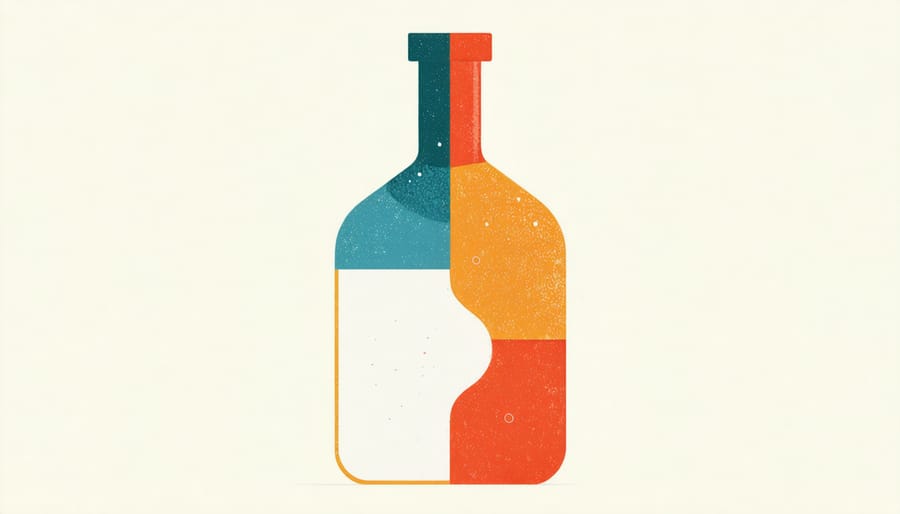
Optimal Water Intake for Healthy Blood Pressure
Daily Water Requirements
The amount of water you need daily varies based on several factors, including your age, climate, activity level, and overall health condition. While the commonly cited “8 glasses a day” rule provides a general guideline, your individual needs may differ significantly. The National Academies of Sciences, Engineering, and Medicine recommend approximately 3.7 liters (15.5 cups) daily for men and 2.7 liters (11.5 cups) for women, including water from all sources.
For those monitoring their blood pressure, maintaining proper hydration is crucial. Your water needs may increase if you live in hot climates, exercise regularly, or take certain blood pressure medications. When choosing your water source, understanding the differences between filtered vs bottled water can help you make informed decisions about your daily intake.
To ensure you’re getting enough water, monitor these signs of adequate hydration:
– Light yellow to clear urine color
– Regular bathroom visits
– Moist lips and mouth
– Elastic skin that bounces back quickly when pinched
– Consistent energy levels throughout the day
Remember that other beverages and water-rich foods contribute to your daily intake, but plain water should remain your primary source of hydration. Adjust your intake based on your activity level, environment, and any guidance from your healthcare provider, especially if you have specific blood pressure concerns.
Timing Your Water Intake
Proper timing of water intake throughout the day plays a crucial role in maintaining healthy blood pressure levels. Instead of consuming large amounts of water at once, aim to space your intake evenly across your waking hours. Start your day with a glass of water upon waking to rehydrate after sleep and boost your metabolism.
During the morning hours, try to consume about 30% of your daily water intake, as this helps prepare your body for daily activities. Maintain steady hydration by drinking water between meals rather than during them, which aids in proper digestion and nutrient absorption.
For optimal blood pressure management, drink water about 30 minutes before exercise and continue sipping during and after physical activity. This practice helps maintain blood volume and supports healthy circulation. In the afternoon, aim for another 30-40% of your daily water intake, focusing on staying consistently hydrated during peak activity hours.
Reduce water consumption in the evening, especially within two hours of bedtime, to avoid disrupting sleep with frequent bathroom visits. However, keep a small glass of water nearby for nighttime thirst. Listen to your body’s signals and adjust your drinking schedule based on factors like climate, activity level, and personal health conditions.
Remember that consistency is key – maintaining steady hydration throughout the day is more beneficial for blood pressure regulation than sporadic water consumption.
Water Quality and Blood Pressure Management
Minerals in Water That Affect Blood Pressure
The minerals present in your drinking water can significantly impact your blood pressure levels. Calcium and magnesium, naturally occurring minerals in water, have been shown to help maintain healthy blood pressure. Studies indicate that water rich in these minerals can contribute to better cardiovascular health, with magnesium particularly helpful in relaxing blood vessels.
However, not all minerals in water are beneficial. High sodium content in drinking water can raise blood pressure, especially in salt-sensitive individuals. While the amount of sodium in most tap water is relatively low, some water sources, particularly those near coastal areas or in regions with specific geological formations, may contain higher levels.
Potassium, another essential mineral, helps balance sodium levels and can help regulate blood pressure when present in drinking water. Some water filtration systems can enhance the mineral content of your water while removing harmful contaminants.
Hard water, which contains higher levels of calcium and magnesium, may taste less appealing but could offer cardiovascular benefits. If you’re concerned about your water’s mineral content, consider having it tested. Understanding your water’s mineral composition can help you make informed decisions about treatment options and potential dietary adjustments to support healthy blood pressure levels.
Filtered vs. Tap Water for Heart Health
Recent studies suggest that the quality of water you drink may impact your blood pressure as much as the quantity. While tap water is generally safe and regulated, it can contain minerals and contaminants that affect cardiovascular health. Various water filtration methods offer different benefits for heart health.
Filtered water typically contains fewer heavy metals and chlorine byproducts than unfiltered tap water, potentially reducing cardiovascular stress. Research indicates that water filtered through activated carbon or reverse osmosis systems may help maintain healthy blood pressure levels by removing compounds that can affect arterial function.
However, it’s important to note that some minerals in tap water, like magnesium and calcium, can actually support heart health. The ideal solution might be using a filter that removes harmful contaminants while preserving beneficial minerals. Multi-stage filtration systems often achieve this balance, providing clean water that supports overall cardiovascular wellness.
Consider having your tap water tested to understand its composition and choose a filtration system that addresses any specific concerns while maintaining essential minerals. This balanced approach ensures you’re getting the most heart-healthy benefits from your daily water intake.
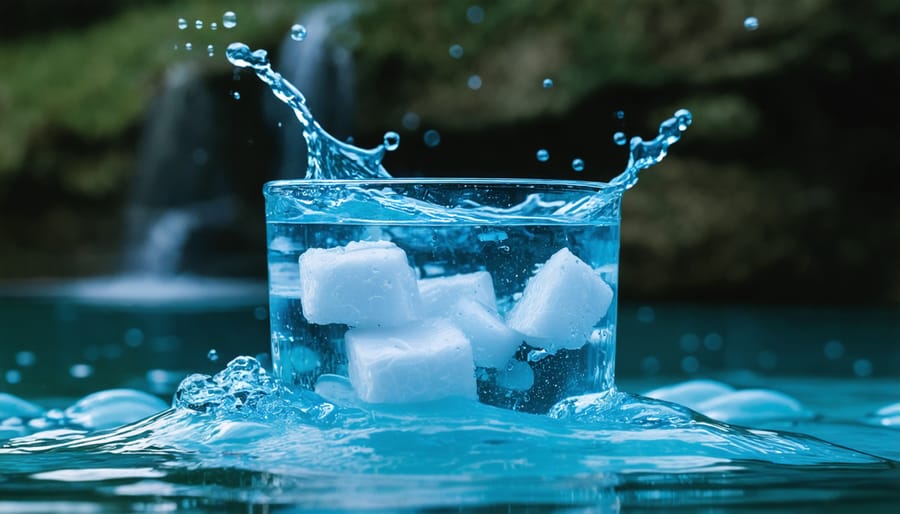
Tips for Maintaining Healthy Hydration Habits
Maintaining healthy hydration habits doesn’t have to be complicated. Start by keeping a reusable water bottle with you throughout the day, making it easier to track your intake and ensure you have safe drinking water at home and on the go. Set specific drinking times, such as having a glass of water when you wake up, before each meal, and before bedtime.
Consider using a smartphone app or setting regular reminders to prompt you to drink water. Pay attention to your body’s signals – thirst, dark urine, or dry mouth are indicators that you need to increase your water intake. If you struggle with plain water, try infusing it with natural flavors like cucumber, lemon, or mint leaves.
Create a routine by linking water consumption to daily activities. For instance, drink a glass after brushing your teeth or returning from a walk. Keep water at comfortable room temperature, as some people find it easier to drink than cold water. During exercise or hot weather, increase your intake to compensate for fluid loss through sweating.
Monitor your progress but avoid obsessing over exact quantities. Instead, focus on consistency and listening to your body’s needs. Remember that other beverages and water-rich foods contribute to your daily fluid intake, but plain water should remain your primary source of hydration.
Maintaining proper hydration is a crucial yet often overlooked aspect of blood pressure management. As we’ve explored, regular water consumption helps maintain healthy blood volume, supports kidney function, and can contribute to lower blood pressure levels when combined with a balanced lifestyle. Aim to drink 8-10 glasses of water daily, adjusting your intake based on activity level, climate, and personal health needs. Consider keeping a reusable water bottle handy and setting regular hydration reminders throughout the day. Remember that quality matters as much as quantity – using filtered water can help remove contaminants that might affect your health. By making conscious hydration choices and maintaining consistent water intake, you’re taking an important step toward better blood pressure control and overall cardiovascular health.
